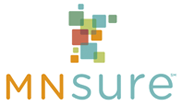Financial Help FAQ
Qualifying for Financial Help
Job-Based Insurance and Financial Help
A federal rule change makes more families with access to employer insurance eligible for savings through MNsure.
Tax Credits and Tax Filing
Expanded tax credits available to Minnesotans only through MNsure have been extended by Congress for three years, through 2025.
Income Changes and Financial Help
COBRA Coverage
Health Reimbursement Arrangements
See affordability worksheets and additional information about the types of HRAs that can affect tax credits through MNsure.
Renewing Coverage and Financial Help
See more FAQ about renewing coverage.
